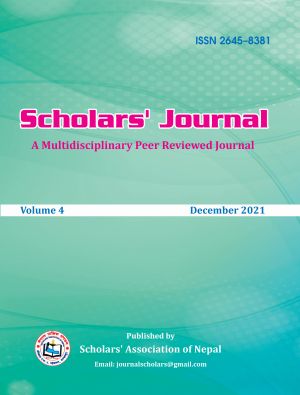Ideological Influence over Marginalisation in Classroom Teaching Practices: A Critical Reflection
DOI:
https://doi.org/10.3126/scholars.v4i1.42464Keywords:
Critical pedagogy, identity, ideology, marginalisationAbstract
Having had multicultural, multi-ethnic and multi-religious identities, Nepali communities have their own distinct and interrelated ideologies across communities from where the students and teachers come to interact in the classrooms. Furthermore, the issue of ideological supremacy has been an obvious factor hindering some communities to rise up to the mainstreaming of equal learning opportunities. This paper recollected teachers’ reflections on their teaching events over time in language classrooms and studied the prevalent Nepali academia where the demarcation between the marginalised and privileged groups of learners is realised. The study showed that marginalisation in the classroom is a fundamental occurrence particularly based on cultural identity and gender ideology. Besides, this paper also explained how the predominant phenomena and ideologies of the educational actors play the significant role over some learners to marginalise them from equal educational opportunities in the classrooms, and how critical pedagogy can be instrumental to overcome the situation and bring all the learners within a single boat of dignified learning.
Downloads
Downloads
Published
How to Cite
Issue
Section
License
Copyright (c) 2021 Ashok Kumar Adhikari

This work is licensed under a Creative Commons Attribution-NonCommercial 4.0 International License.
Copyright © The Authors

